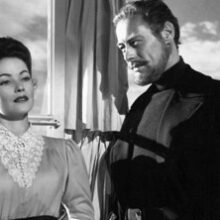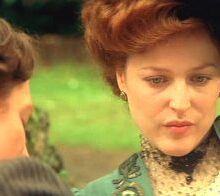

Raoul Peck’s documentary explores the life and thought of George Orwell, and how his political insights are relevant today.
Haitian filmmaker Raoul Peck has been a prominent creator of radical cinema for four decades. Most probably know him best as the director of I Am Not Your Negro, a 2016 documentary using the words of James Baldwin to describe structural racism in the U.S., which got an Oscar nomination. His latest is called Orwell: 2+2=5. It’s about the work of the English novelist, journalist, and social commentator George Orwell, particularly his writings about politics and the threat of totalitarianism expressed in his final book, “1984.”
The technique is somewhat similar to that of the Baldwin film. We hear excerpts from Orwell’s writings, including letters and diary entries, performed by British actor Damien Lewis. Peck accompanies these voice-overs with a dynamic variety of archival footage, from newsreels of current and past events, scene setting photos and shots from Orwell’s life and the places he lived, and clips from many motion pictures, including all the adaptations of 1984 that have been released since the novel appeared back in 1949. We are guided through Orwell’s thought through this amazing succession of images. The effect is masterful.
Orwell’s real name was Eric Blair. He came up with the pseudonym when he first started writing in the 1930s. The movie opens with details about his family, birth, and childhood, which was intimately connected to the conditions of British empire: he was born in India, where his father worked as a commercial agent, and then as a young man he signed up to work as a policeman in Burma, which was also a British colony at the time. We hear about how the experience of being part of the mechanism of empire made him aware of the absolute injustice of it all—the separation of the white colonist from the natives that were considered to be inferior and unworthy of self-rule. Then we see footage of the present military dictatorship of Myanmar, which is what Burma is called now, and its persecution of the Rohingya people.
Throughout this film, the correspondences are thus made between Orwell’s experiences and insights and the events of the present day. It’s called Orwell: 2+2=5 because in the book “1984,” the people are forced to believe that formula as part of their submission to the dictatorship. It’s from one of the three totalitarian statements in the book by which Orwell sums up the destruction of the idea of objective truth: War is Peace, Freedom is Slavery, Ignorance is Strength. For Peck, this kind of fascist language has become dangerously common today.
Orwell fought against Franco in the Spanish Civil War, and we see footage about that conflict, and also of the Nazis, the Soviets, the Cold War, dictatorships today like China and Russia, and yes, Donald Trump, the latest threat to our freedom. No narrators other than Orwell are needed. All the footage reflects things that Orwell wrote. It’s chilling to realize how much of what he thought could happen did happen and still is. But the film is not a catalog of dim horrors: everything we see is brilliantly elucidated in the clear and incisive prose of one of the best modern writers in the language.
To understand how totalitarian systems gain and hold on to power is an urgent necessity today. Orwell: 2+2=5 puts it all together for us in an intricate collage of eloquence and imagery.






